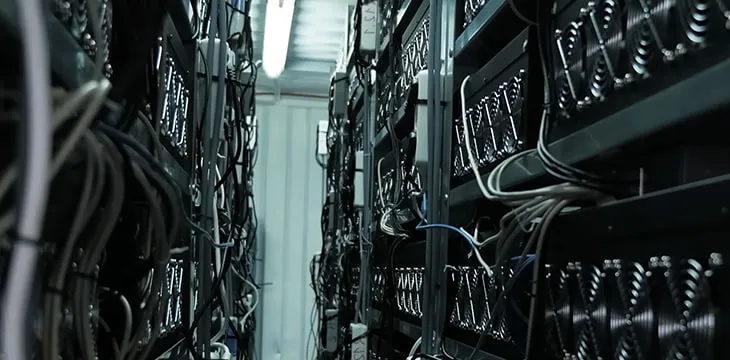|
Getting your Trinity Audio player ready...
|
New York is the latest state to consider banning proof of work (PoW) mining. Members of the New York State Assembly’s Environmental Conservation Committee voted in favor of an assembly bill that “establishes a moratorium on cryptocurrency mining operations that use proof-of-work authentication methods to validate blockchain transactions.”
The bill will now advance and be considered by the entire Assembly and State Senate. Lately, legislators have taken a strong interest in blockchain mining. This is the second instance within a month where legislators proposed a ban on Proof-of-Work mining.
In early February, the chair of sustainable finance at The International Organization of Securities Commissions (IOSCO) proposed a proof of work (PoW) mining ban in the European Union via a proposal in MiCA, the EU’s legislation for governing digital assets. However, the provision in MiCA that would have banned proof of work mining was excluded from the final bill.
Why ban proof of work?
“Globally, policymakers are hyper-focused on ESG related issues as evidenced by the agreements from the November 2021 Conference of the Parties (COP26) and most recently, SEC proposals requiring U.S. companies to provide information detailing climate footprint including Scope 1, 2 and in some cases Scope 3 greenhouse gas (GHG) emissions,” said Bryan Daugherty, Public Policy Director for BSV Blockchain.
“The goals are motivated by The Paris Agreement signed in 2015 to limit global warming to well below 2, preferably to 1.5 degrees Celsius, compared to pre-industrial levels. This requires greenhouse gas emissions to be cut by 85% by 2050, with net emissions being slashed to zero.”
Many lawmakers think that one of the easiest ways to reach these climate and energy goals is to eliminate or ban energy-intensive processes—such as Proof of Work blockchain mining.
“The leading argument that is fueling the ban on Proof-of-Work surrounds the understanding that ‘Bitcoin’ runs on an energy-intensive network. This is highlighted by respected online resources such as Digiconomist’s Bitcoin Energy Consumption Index which details the latest estimates of total energy consumption on the Bitcoin Core (BTC) network,” Daugherty said.
“Their latest research, which is based on using Bitcoin Core (BTC) as the benchmark concludes that a rapid solution to Bitcoin’s carbon footprint is not within sight. Using BTC as the benchmark for Proof-of-Work, it is nearly impossible to justify the incredible amount of energy consumed in return for the questionable utility provided. Simply exchanging the BTC for BSV, as was compared in MNP’s ‘search for a more efficient Bitcoin,’ demonstrates that there is a more scalable, sustainable example for a Proof-of-Work blockchain,” he added.
Not all blockchain mining is wasteful. If enterprises and governments use a blockchain network as a data layer to create real value globally, then the fruits of the labor often outweigh the amount of energy the process consumes.
“An outright ban on Proof-of-Work mining will ultimately have drastic effects upon a region’s future economic competitiveness. Blockchain, BSV specifically, has demonstrated that proof-of-work can scale and provide next-generation data security and integrity—this is important as we transition into a global data-powered economy,” Daugherty explained.
One of the primary reasons legislators propose a proof-of-work mining ban is because there is a fundamental lack of education around blockchain technologies. The industry as a whole is a little more than a decade old, lawmakers were one of the last groups to turn their attention to the nascent technology, and they only did so because it was becoming too big to ignore.
“I believe that most lawmakers do not understand the true utility and innovative security that a scalable, proof-of-work blockchain can provide. This is no fault of their own, but due to the limited access to the latest research and technical expertise surrounding the differences between cryptocurrencies and blockchain,” Daugherty noted.
“More comprehensive reviews on blockchain are needed to ensure that a balanced, unified, and standardized approach is carried out prior to potentially stifling innovation. It is a matter of national and public interest to assure that stable, secure, and sustainable blockchain technology has the unobstructed lane to meet its inherent design to scale and handle the world’s data and financial growing needs, improving beyond the capabilities of today’s limited digital infrastructure,” he concluded.
Watch: CoinGeek New York panel, How to Achieve Green Bitcoin: Energy Consumption & Environmental Sustainability

 07-02-2025
07-02-2025 





